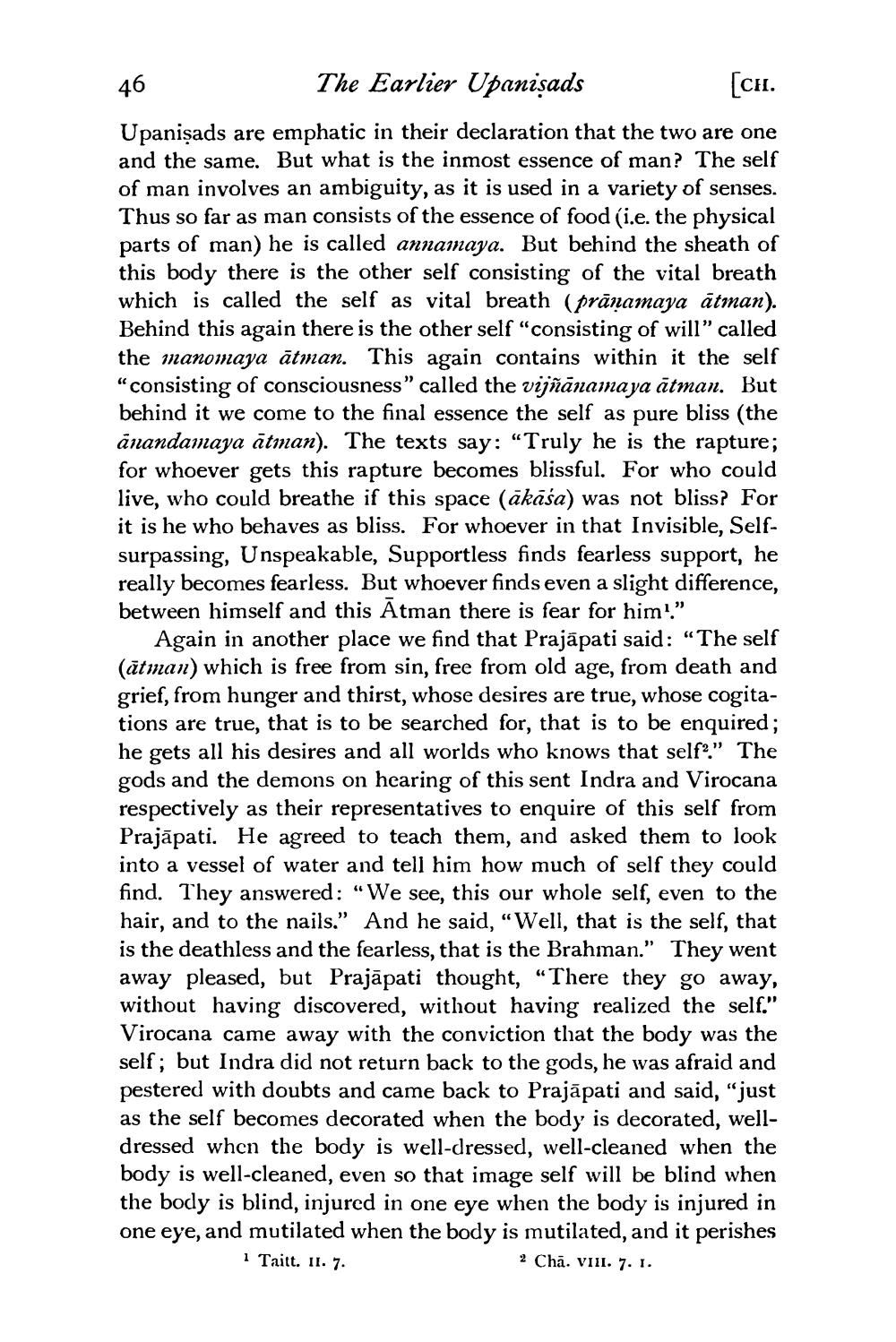________________
46
The Earlier Upanişads
[CH. Upanişads are emphatic in their declaration that the two are one and the same. But what is the inmost essence of man? The self of man involves an ambiguity, as it is used in a variety of senses. Thus so far as man consists of the essence of food (i.e. the physical parts of man) he is called annamaya. But behind the sheath of this body there is the other self consisting of the vital breath which is called the self as vital breath (prānamaya atman). Behind this again there is the other self "consisting of will” called the manomaya ātman. This again contains within it the self "consisting of consciousness” called the vijñānamaya ātman. But behind it we come to the final essence the self as pure bliss (the ånandamaya ātman). The texts say: "Truly he is the rapture; for whoever gets this rapture becomes blissful. For who could live, who could breathe if this space (ākāśa) was not bliss? For it is he who behaves as bliss. For whoever in that Invisible, Selfsurpassing, Unspeakable, Supportless finds fearless support, he really becomes fearless. But whoever finds even a slight difference, between himself and this Ātman there is fear for him?"
Again in another place we find that Prajāpati said: “The self (ātman) which is free from sin, free from old age, from death and grief, from hunger and thirst, whose desires are true, whose cogitations are true, that is to be searched for, that is to be enquired; he gets all his desires and all worlds who knows that self?." T gods and the demons on hearing of this sent Indra and Virocana respectively as their representatives to enquire of this self from Prajāpati. He agreed to teach them, and asked them to look into a vessel of water and tell him how much of self they could find. They answered: “We see, this our whole self, even to the hair, and to the nails." And he said, "Well, that is the self, that is the deathless and the fearless, that is the Brahman." They went away pleased, but Prajāpati thought, “There they go away, without having discovered, without having realized the self." Virocana came away with the conviction that the body was the self; but Indra did not return back to the gods, he was afraid and pestered with doubts and came back to Prajāpati and said, “just as the self becomes decorated when the body is decorated, welldressed when the body is well-dressed, well-cleaned when the body is well-cleaned, even so that image self will be blind when the body is blind, injured in one eye when the body is injured in one eye, and mutilated when the body is mutilated, and it perishes 1 Taitt. II. 7.
2 Chā. VIII. 7. 1.




